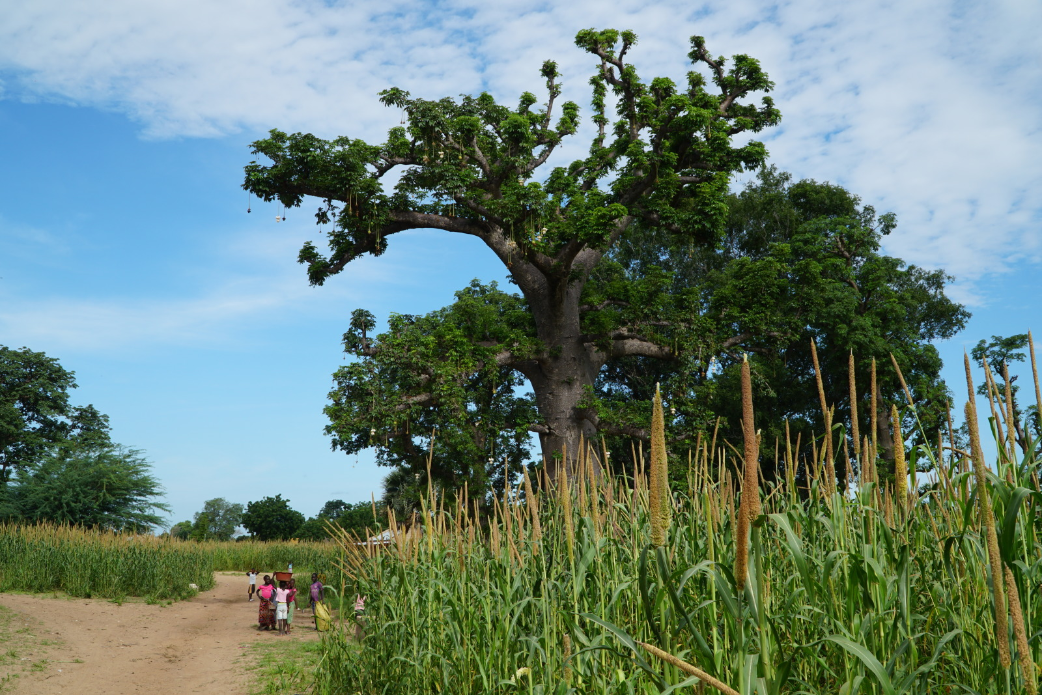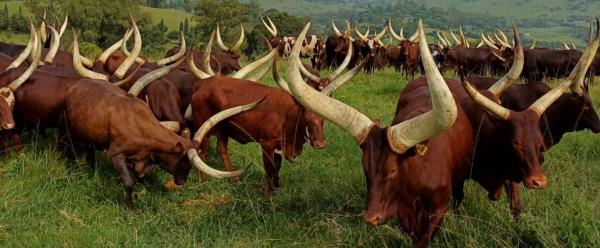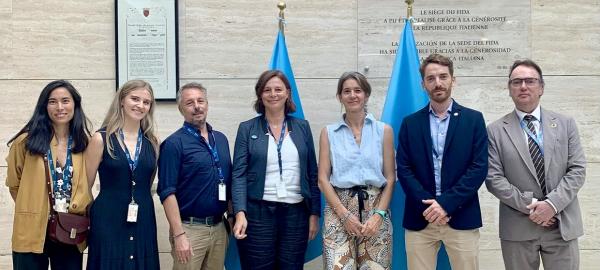Institutional news 8 December 2025
- Home
- CIRAD news
- News
- Expertise | CIRAD is coordinating 13 EU DeSIRA projects in favour of resilient agriculture
Expertise | CIRAD is coordinating thirteen projects under the EU DeSIRA programme in favour of resilient agriculture

Boosting agricultural innovation and transforming food systems in various countries to make them more resilient to the effects of climate change is the aim of the DeSIRA programme launched by the European Commission at the One Planet Summit in December 2017.
It will primarily contribute to the following sustainable development goals (SDGs): 1 (no poverty), 2 (zero hunger), 5 (gender equality), 8 (decent work and economic growth), 13 (climate action) and 15 (life on land).
High-impact, operational solutions
To be chosen under the programme, projects must, by means of research and innovation, provide high-impact operational solutions to the challenges facing agricultural and food systems, which have been further exacerbated by the Covid-19 pandemic. Those systems now face major issues: their economic, social and environmental sustainability is threatened, and their resilience to demographic shocks and climate change is increasingly limited.
They must also:
- satisfy the need for innovations tailored to local issues and priorities;
- adopt a multi-stakeholder approach;
- aim for high impact, by means of multidisciplinary and cross-sectoral approaches, and build skills among stakeholders.
Thirteen projects with a total budget of 60 million euros, and strong North-South partnerships
As of 2021, following the three successive annual calls that began in 2018, CIRAD will be coordinating thirteen projects in all*, with a total budget of 60 million euros. That budget is provided by the DeSIRA programme and additional funding from several member States, including France via AFD, along with Spain, Germany, Belgium, Luxembourg, etc.
The projects were prompted by requests from either EU delegations or EU member States. They are the result of close collaboration, in some cases over more than a year, between European agricultural research organizations and national research, development, civil society and innovation partners in the target countries.
They are thus built upon strong, wide-ranging partnerships with some forty research organizations in the global South, a dozen in the global North, a dozen NGOs and around ten farmers' organizations.
Five projects were selected under the DeSIRA 2018 call, four of which began operations in 2020:
- BIOSTAR, aimed at developing sustainable bioenergies for small and medium-sized agrifood firms, using crop residues or processing waste, in Burkina Faso, Senegal and Ivory and Ivory Coast;
- COCOA4FUTURE, which aims to make cocoa farms in Ivory Coast and Ghana less vulnerable, while preserving the environment and identifying levers for socioeconomic sustainability;
- FAIR, on agroecological intensification to boost the resilience of farmers in the Sahel (Burkina Faso, Mali, Niger, Senegal);
- LIDISKI, on the surveillance and control of peste des petits ruminants and Newcastle disease through smart technology development, in rural zones exposed to food insecurity in Nigeria.
The fifth, IRRINN, is due to begin in early 2021, and is aimed at intensifying periurban agricultural production in Burkina Faso by rolling out and scaling up innovative, appropriate irrigation practices and technology.
The BIOSTAR, COCOA4FUTURE and FAIR projects all have additional funding from the Agence française de développement (AFD)
Four projects funded under DeSIRA 2019, were signed in late 2020 and will begin operations in 2021:
- ACCES, aimed at accelerating agricultural innovation by strengthening innovation support services in Burkina Faso;
- MAKIS, aimed at building agricultural innovation capacity in Madagascar;
- MRIGO, on periurban agroecological market gardening in Ivory Coast;
- AMINATA, aimed at improving access to agricultural innovations to foster the agroecological transition in Mali.
Lastly, CIRAD is currently finalizing four projects submitted under the DeSIRA 2020 call. They were validated by the European Commission in November and will also be launched in 2021:
- DINAMICC, to develop integrated approaches and provide support for innovative family farming operations resilient to climate change in Madagascar;
- RAIZ , to promote agroecological intensification as a means of developing more resilient agriculture in Zimbabwe ;
- in Uganda, a project centring on the role of agroforestry in Robusta coffee plantations with a view to making small plantations more resilient to climate change;
- Territoires / Santés , using the One Health approach to make human, animal and plant health a development driver as part of the agroecological transition. It will centre on West Africa, with extensions in Southeast Asia and the Caribbean.
It is funded by AFD, with additional support from DeSIRA 2020 and CIRAD.
CIRAD is also a partner in sixteen other DeSIRA projects.
The DeSIRA initiative The DeSIRA initiative (Development Smart Innovation through Research in Agriculture) is led by the European Commission Directorate General International Partnerships (DG INTPA) and is working with the Bill & Melinda Gates Foundation. It intends to strengthen research partnerships (Europe and the global South) and promote research in partnership with development players and impact-oriented research. It receives financial support from several European national development agencies. |



























